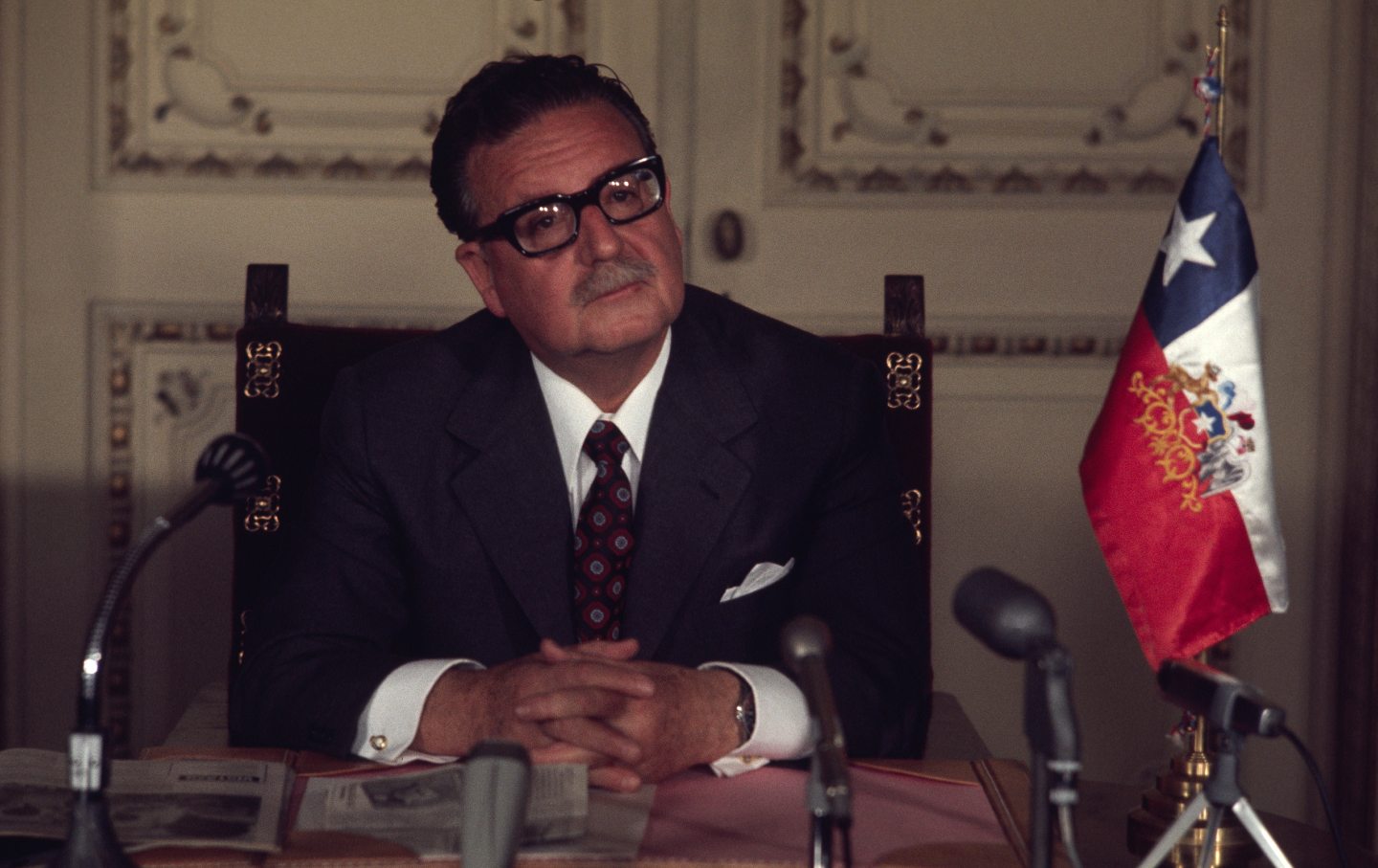/
Farewell to Allende
From the September 24, 1973 issue of The Nation.
Salvador Allende posing for a portrait on June 10, 1971 in Santiago, Chile.
(Santi Visalli / Getty)
Salvador Allende, the Marxist doctor, who squeaked into the presidency of Chile in 1970 by a narrow margin, has now been deposed by a military coup and is dead, allegedly by his own hand. His regime had been in deep trouble from its inception, in part because of Dr. Allende’s lack of political cunning and ideological flexibility—he took his constitutional Socialist convictions seriously—and the predictable opposition of the wealthy and middle-class businessmen who feared for their perquisites and property.
But from the outset many of Allende’s woes originated from up north. The story of the International Telephone and Telegraph Corporation’s efforts to influence the election, and its barefaced million-dollar attempt to bribe the CIA to intervene, is well known.
Throughout Allende’s three years in office, U.S. official bodies and private firms continued to relentlessly wage economic war. The large copper companies whose properties had been expropriated not only refused technical aid but tried to have Chilean copper excluded from European markets. The US-dominated World Bank cut off all credits and even refused communication with the Chilean Government. Attempts were made to persuade European banks and lending agencies to discontinue financial support. U.S. economic aid was severely cut, amounting in 1973 to only $3 million, largely for school lunches. Hostility was total with one significant exception: military aid, continued unslackened. The tanks that fired on the Presidential palace and the planes that bombed it were made in America and cheerfully supplied. And now the military is in charge.
Officials of the Nixon Administration have initially declined to comment. Such silence upon the death of a head of state is scarcely the diplomatic norm, but one wonders what in diplomatic terms they could find to say now.
The Nation
Founded by abolitionists in 1865, The Nation has chronicled the breadth and depth of political and cultural life, from the debut of the telegraph to the rise of Twitter, serving as a critical, independent, and progressive voice in American journalism.
More from The Nation
September 11, 1973, Was a Warning: Democracy Can Die in a Day
September 11, 1973, Was a Warning: Democracy Can Die in a Day
Fifty years ago, the US exported a cult of revanchist violence to Chile. Now it has made its return.
Biden Complacency Is Just As Bad as Biden Panic
Biden Complacency Is Just As Bad as Biden Panic
Don’t wet your bed. Organize!
September 11, 22nd Anniversary
September 11, 22nd Anniversary
Militants associated with al-Qaeda carried out the deadliest terrorist attacks on American soil in U.S. history, resulting in almost 3,000 people killed in New York, Washington DC,…
Exclusive: With My Father, Salvador Allende, in His Final Hours
Exclusive: With My Father, Salvador Allende, in His Final Hours
An excerpt from 11 de Septiembre: Esa semana (11th of September: That Week)
50 Years After “the Other 9/11”: Remembering the Chilean Coup
50 Years After “the Other 9/11”: Remembering the Chilean Coup
Some personal reflections on history, memory, and the survival of democracies.
Can You Keep Breastfeeding When You Work 30,000 Feet in the Air?
Can You Keep Breastfeeding When You Work 30,000 Feet in the Air?
Flight attendants desperately need legal protection to ensure their right to pump on the job—but airline industry lobbying cut them out of a law that will provide just that for mi…
